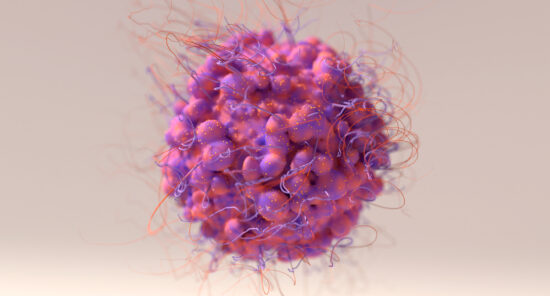Credit: Original article published here.
A randomized, placebo-controlled clinical trial did not find a significant clinical benefit of colchicine twice daily for pain relief in patients with osteoarthritis (OA) of the hand. Notably, treatment with colchicine was also associated with greater incidence of adverse events (AEs). These findings were published in Lancet Rheumatology.
Colchicine is a medication used for the treatment of gout. It as anti-inflammatory properties, but there is limited evidence of its benefit for treatment of other conditions.
This single-center study enrolled 100 patients with symptomatic hand OA and finger pain who were treated at an outpatient clinic in Denmark. Inclusion criteria was a pain rating of at least 40 mm out of 100 mm on the visual analog scale (VAS). The target hand was the hand with the most severe finger pain at baseline. The study was double-blinded, and patients were randomized to either 0.5 mg colchicine or placebo taken orally, twice daily for a period of 12 weeks.
Patients were stratified according to sex, whether their age was ≥75 years, and whether their body mass index (BMI) was ≥30 kg/m2. The primary endpoint was changes in target hand pain at 12 weeks, assessed via VAS. The researchers pre-specified a minimal clinically important difference of 15 mm in the intention-to-treat population. Safety was assessed at 12 weeks. Fifty patients were assigned to each treatment group, and all participants completed the study. The mean age was 70.9 years, and 69% of participants were women.
At 12 weeks, the mean change in finger pain from baseline in the colchicine arm was –13.9 mm (standard error [SE] 2.8); the mean change was –13.5 mm (SE 2.8) in the placebo arm. The difference between groups was not statistically significant (–0.4 mm; 95% confidence interval –7.6 to 6.7; P=.90).
Regarding AEs, 76 events in 36 patients (72%) occurred in the treatment group, with one serious AE (migraine leading to hospital admission). Comparatively, 42 events in 22 patients (44%) occurred in the placebo group. There were two serious AEs in the placebo group: cholecystitis and elevated alanine aminotransferase concentrations, which occurred in the same patient.
In summary, the authors wrote, “In people with painful hand osteoarthritis, treatment with 0.5 mg of colchicine twice day for 12 weeks did not effectively relieve pain, and treatment with colchicine was associated with more adverse events.”


